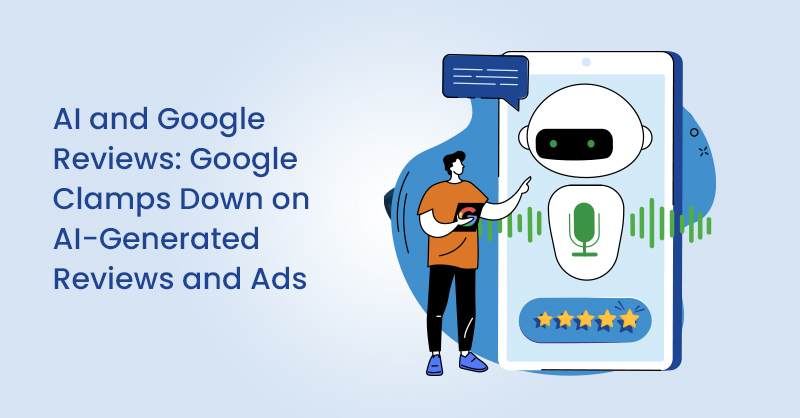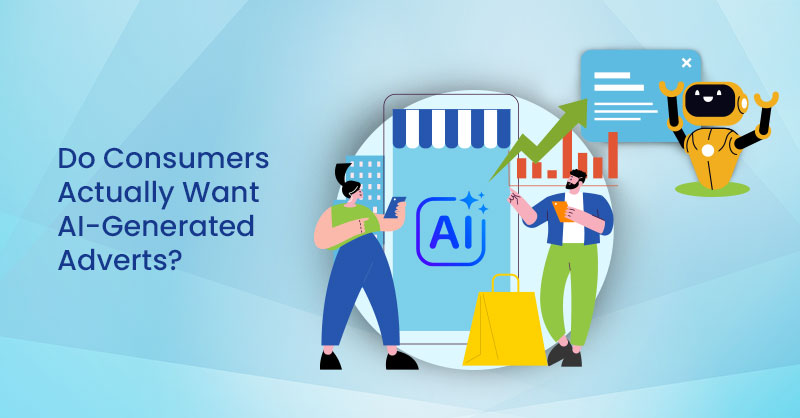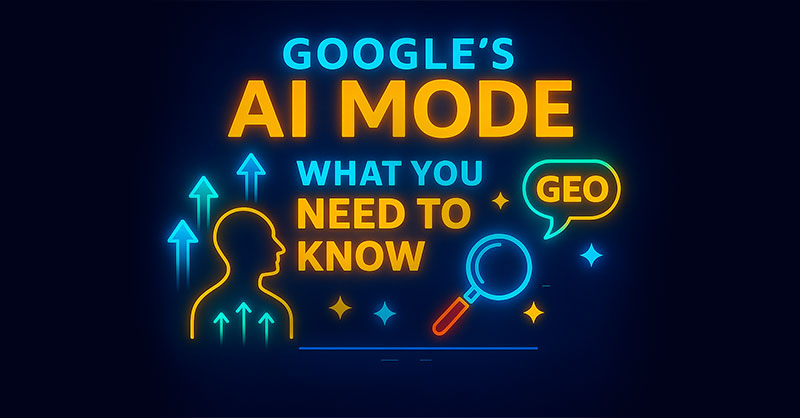AI is changing the way we work. Apps use algorithms and machine learning to create written and visual materials. AI content writers have become popular for a reason—they’re saving us time and money. There have been no universal pricing structures or regulations.
Now, however, it looks like Google is starting to clamp down. Google is placing new restrictions on AI-generated reviews on Google Business Profile. Google also will require that political ads on its platforms let people know when images and audio have been created using artificial intelligence. This rolls out in November and will have implications for the upcoming 2024 political season.
Google’s suggested labelling: "this image does not depict real events" or "this video content was synthetically generated". Political ads also must disclose who paid for them.
In this blog, I will be discussing how Google handles AI-generated reviews and ads, how AI has evolved as an industry, the pros and cons of AI apps, and strategies to create effective human-generated content. To learn more, keep reading ahead.
Google’s Views on “Automated Content”
Take a look at Google’s following statement on automated content:
“We don’t allow reviews that are primarily generated by an automated program or artificial intelligence application. If you have identified such content, it should be marked as spam in your feed using the <is_spam> attribute.” It looks like business owners are primarily responsible for flagging this AI-generated content. What’s unclear, though, is how businesses should know if the content is AI-generated or not. It’s still very murky.
In this article, we will explore the rise of AI-generated content, its benefits and its drawbacks. We’ll also take a look at the ethics of AI and what comes next.”
We Can Expect to See More Regulation
AI is an industry in its infancy, and a myriad of ethical issues are surfacing along with the industry’s rapid growth.
Regulations will come from search engines like Google and Bing, our state and federal governments and the tech industry. They will even come from banks and financial institutions, from medical and education industries.
There are profound implications about the power of AI to affect our lives. Yet, when it comes to AI and ethics, it’s the wild, wild west. This will change because the potential for abuse is high. We’re not a society that has done very well at self-regulating itself. Addressing ethical challenges will require interdisciplinary collaboration.

Source: Synergetics
Content Pillars
If we divide AI into content pillars, as per the image above, the content pillars are based on the value they provide the user. These content pillars also work together, and there is always a human component.
See below:
- Bias and fairness: AI systems can be biased if the data used to train them is biased or if there are inherent biases in the algorithms. This can lead to discriminatory outcomes. Remember that AI content comes from data. Is an AI app pulling its data from a red state different from a blue state? If so, this is where the bias starts to come in.
- Privacy and data protection: AI systems often rely on collecting and analyzing large amounts of personal data. Ensuring the privacy and security of this data raises concerns about consent, transparency, and the potential for misuse.
- Accountability and transparency: As AI systems become more complex, how do we control decision-making? This lack of transparency raises questions about accountability and the ability to challenge or appeal AI-derived outcomes.
- Automation and job displacement: For this content pillar, there is increasing automation of tasks by AI. It has the potential to disrupt industries and displace workers. Addressing the ethical implications means considering the impact on employment and ensuring a transition for affected individuals.
A few months ago, I was listening to the monthly job report and there was a new line item in the report—an item for the number of people who lost their jobs due to AI. I believe this will now be a recurring/standard line item in the jobs report. - Human control and autonomy: Maintaining human control over AI systems is crucial. As AI becomes more autonomous, questions arise about how much humans retain decision-making power and the ethical boundaries of AI decision-making.
- Unintended consequences: AI systems may produce unintended outcomes or behaviours that were not anticipated during development. Ensuring that AI systems align with desired ethical principles and regularly monitoring their performance is important to mitigate potential harm.
There will be other changes. Staying updated on Google's guidelines and best practices is critical. By aligning content strategies with Google's updates, we can enhance our own visibility and maintain a positive reputation.

Source: Adweek
Automated Content: An Industry That’s Moving Fast
AI-generated content has seen a significant surge in recent years, especially in the last year. ChatGPT was a huge difference maker, but so have been upgrades to Writesonic. I’ve been using this application for a year, and the growth of new functionality/enhancements has been stunning.
With advancements in natural language processing and machine learning, automated content can now produce human-like content with ease. Digital marketers have been quick to adopt AI applications to streamline their content creation processes. From automated blog posts and product descriptions to personalized emails and social media updates, keywords and PPC advertising copy. Automated content has become a valuable tool for marketers.
Statistics on the growth and acceptance of automated content writers from MSPowerUser:
- Half of business leaders now use some form of automated content
- 52% of business leaders are currently using AI content generation tools as part of their content marketing strategy
- 64.7% of business leaders will have tried AI by the end of 2023
- 23% of US book authors are using some form of automated content
- 1 in 3 college students has used ChatGPT for homework assignments
- High school seniors are now writing their college entrance essays using AI content writers.
One of my colleagues is an admissions advisor at a prestigious university, and this essay has been an important part of the application process. Will it now become meaningless or obsolete? - OpenAI’s chatbot ChatGPT had 100 million users–this app has not even celebrated its first birthday!
AI-generated Content’s Big Advantage–Its Efficiency
An automated content writer can generate a vast amount of content in minutes, saving marketers valuable time and resources. Additionally, automated content apps can analyze data and user behaviour to create highly targeted content, improving engagement and conversion rates.
Automated Content Apps: The Benefits and Downside
While AI-generated content offers numerous benefits, it is essential that we understand its limitations.
One of the main drawbacks is the lack of human touch and creativity. AI algorithms can mimic human writing styles, but they lack emotional intelligence and critical thinking that humans bring to a story. The result? Content that feels robotic and impersonal. It lacks the case studies, examples and real-life stories that hold the attention of readers and keep them coming back.

Source: EssayService.com
Strategies For Creating High-quality, Human-generated Content
To navigate the inevitable restrictions on AI-generated content, digital marketers should focus on creating high-quality, human-generated content. This type of content adds value to users, fosters trust, and establishes a stronger connection.
Strategies include:
1. Investing in skilled content creators
Hiring skilled content creators who can craft compelling and authentic content is crucial. Find people who love to write good cop and want to tell stories. These professionals will bring a human touch to the content creation process, ensuring it resonates with the target audience.
2. Conducting research and analysis
To create high-quality content, marketers must invest time and effort in thorough research and analysis. This includes understanding the target audience and identifying their needs and preferences. Additionally, conducting keyword research is essential.
3. Using user-generated content
User-generated content enhances authenticity and engagement. Don’t be afraid to share your opinions. With years of experience, I love it when people share their experiences and opinions about a new product or service. It builds trust and community.
4. Leveraging AI
While there are restrictions on AI-generated content, it is essential to recognize that AI can still play a valuable role in digital media efforts. Marketers can leverage automated content applications ethically to enhance their content creation processes.
Conclusion
While Google's restrictions may pose challenges for marketers, they also present an opportunity to prioritize high-quality, human-generated content, still saving time and money. With the right balance between AI and human creativity, marketers can create authentic and engaging content that resonates with their target audiences.
An AI content app produces a draft, not a finished product. I’ve been using a couple of apps for nearly a year now, and I depend on these tools to help me do research or to develop a draft.
Lastly, AI product is often redundant, as it’s robotic and uninteresting. I spend a lot of time adding data, which helps authenticate my article. I try to add examples from my own experience or a case study. I like to insert something of myself into every article. My AI writers have become important partners in the content creation space.
Need assistance with honing your digital marketing strategy? Our expert team at TechWyse Internet Marketing is here to help! Call (416)-410-7090 or contact us here.





